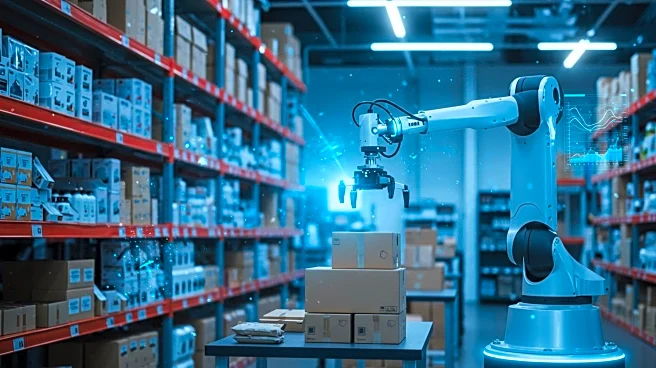What's Happening?
The U.S. economy is experiencing a period of stagnation, with consumer confidence slightly below average and job market weaknesses persisting. Retailers are facing challenges such as decreased traffic and fewer supplier deals. Amid these conditions, artificial intelligence (AI) is being considered as a potential tool to improve operational efficiency and revenue streams. AI applications in inventory optimization, loss prevention, and personalized marketing are being explored to reduce costs and enhance profitability.
Why It's Important?
The exploration of AI in the retail sector could lead to significant changes in how businesses operate, potentially improving efficiency and profitability. By leveraging AI for inventory management and personalized marketing, retailers may be able to better meet consumer demands and reduce operational costs. This shift could benefit the industry by providing a competitive edge in a challenging economic environment, potentially leading to job creation and economic growth.
What's Next?
Retailers may increasingly adopt AI technologies to address economic challenges, with potential impacts on employment and market dynamics. As AI solutions are implemented, businesses will need to monitor their effectiveness and adjust strategies accordingly. The success of AI in improving retail operations could influence other sectors to explore similar technologies, potentially leading to broader economic implications.









